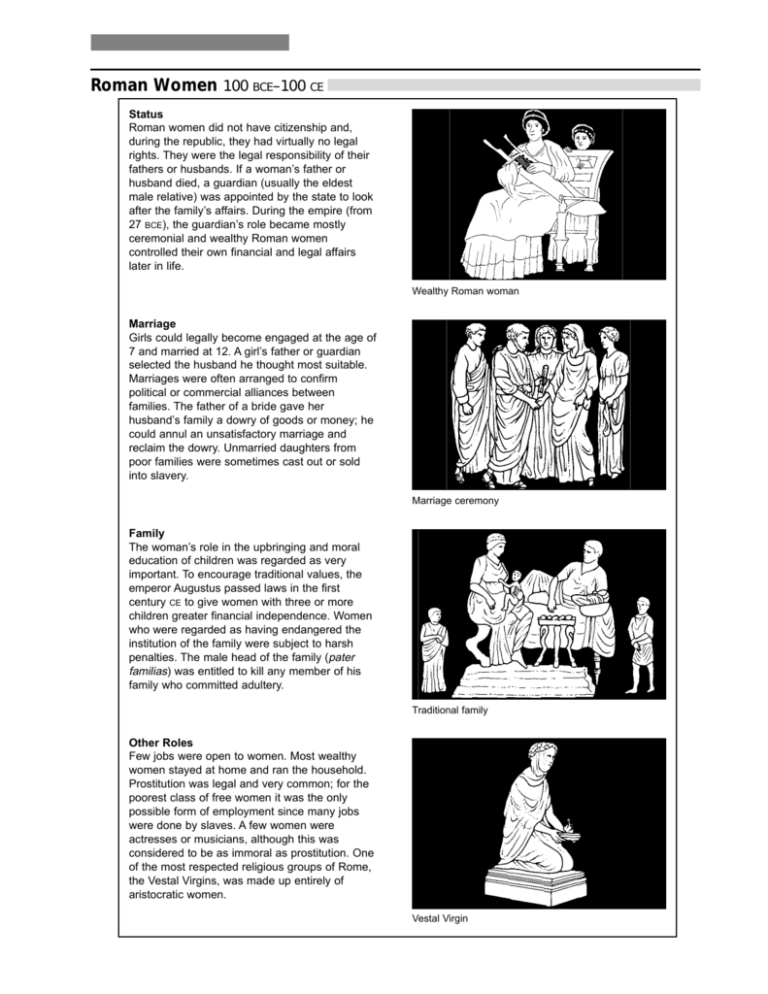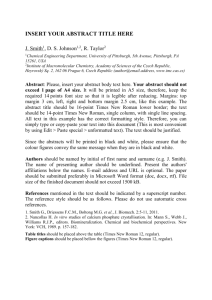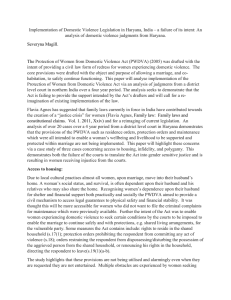Roman Women 100 BCE–100 CE
advertisement

Roman Women 100 BCE–100 CE Status Roman women did not have citizenship and, during the republic, they had virtually no legal rights. They were the legal responsibility of their fathers or husbands. If a woman’s father or husband died, a guardian (usually the eldest male relative) was appointed by the state to look after the family’s affairs. During the empire (from 27 BCE), the guardian’s role became mostly ceremonial and wealthy Roman women controlled their own financial and legal affairs later in life. Wealthy Roman woman Marriage Girls could legally become engaged at the age of 7 and married at 12. A girl’s father or guardian selected the husband he thought most suitable. Marriages were often arranged to confirm political or commercial alliances between families. The father of a bride gave her husband’s family a dowry of goods or money; he could annul an unsatisfactory marriage and reclaim the dowry. Unmarried daughters from poor families were sometimes cast out or sold into slavery. Marriage ceremony Family The woman’s role in the upbringing and moral education of children was regarded as very important. To encourage traditional values, the emperor Augustus passed laws in the first century CE to give women with three or more children greater financial independence. Women who were regarded as having endangered the institution of the family were subject to harsh penalties. The male head of the family (pater familias) was entitled to kill any member of his family who committed adultery. Traditional family Other Roles Few jobs were open to women. Most wealthy women stayed at home and ran the household. Prostitution was legal and very common; for the poorest class of free women it was the only possible form of employment since many jobs were done by slaves. A few women were actresses or musicians, although this was considered to be as immoral as prostitution. One of the most respected religious groups of Rome, the Vestal Virgins, was made up entirely of aristocratic women. Vestal Virgin











